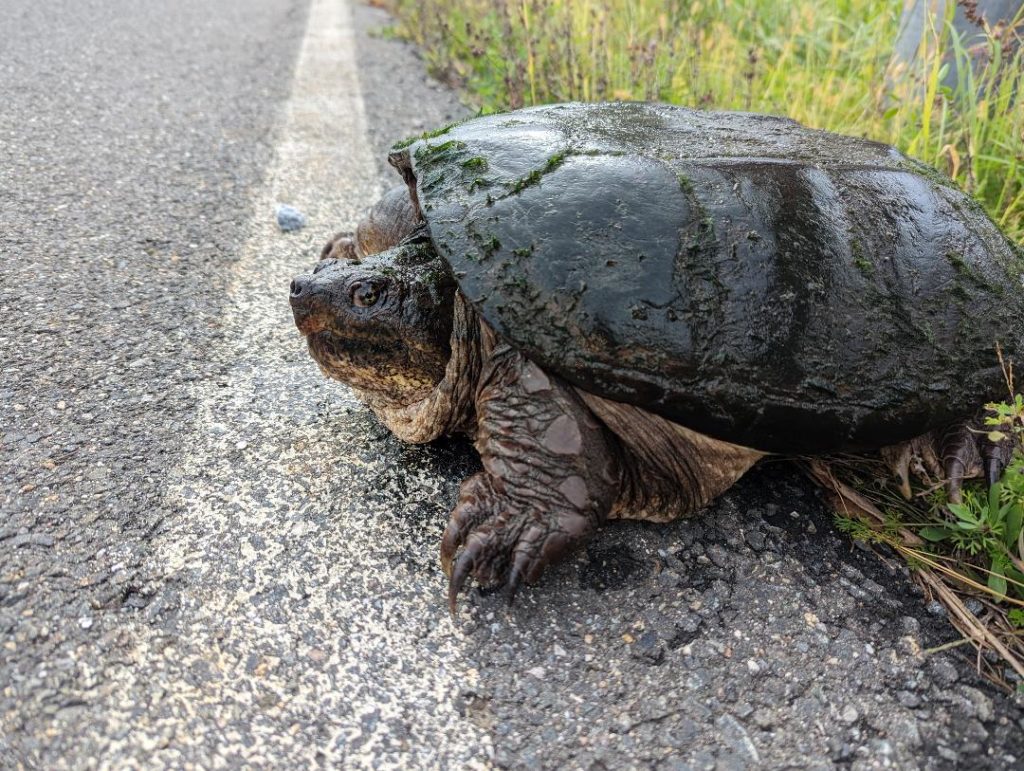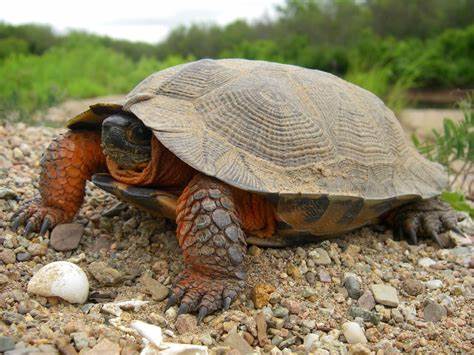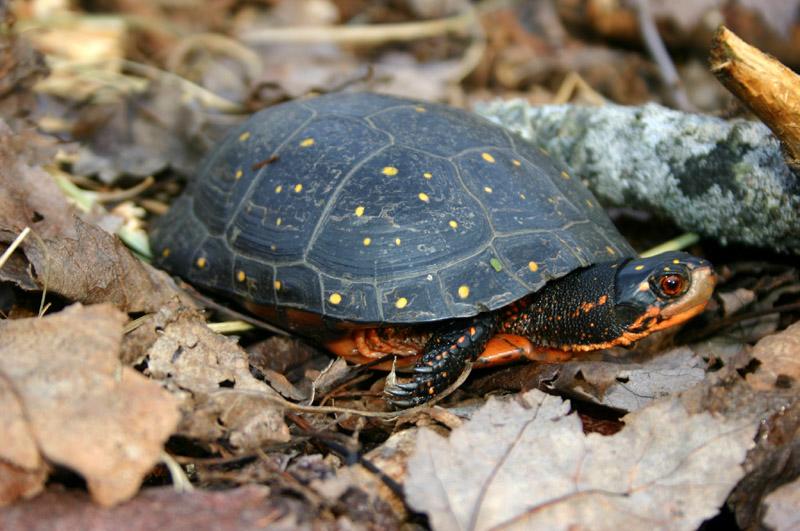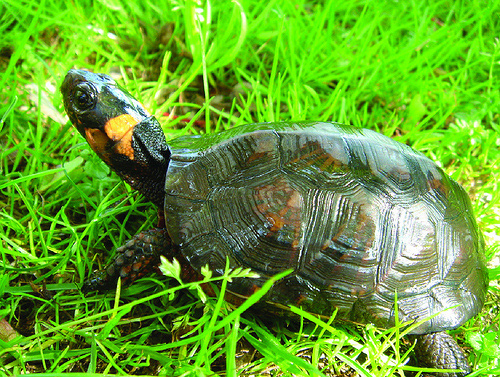Eastern Painted Turtle
Painted Turtles are abundant throughout Massachusetts!
Life span – 30 to 40 years. Females reach sexual maturity around 10 years to 16 years of age. They typically lay 2 to 6 eggs but can lay up to 12 eggs. It takes roughly 72 or more days for the eggs to hatch. Hatchlings will sometimes stay in the nest throughout the winter and emerge in the spring! Hatchlings are completely independent from birth and do not require their parents to care for them. Turtles are not maternal and do not care for their young. Hatchlings have a 90% mortality rate, meaning only 10% of hatchlings will make though their first year. Every year after that their survival rate increases gradually. Painted turtles are probably the most well-known turtles, because of their bright yellow markings on their faces, and you can often times see many of them basking in the sun on logs.

Common Snapping Turtle
Snapping turtles are abundant throughout Massachusetts.
Lifespan – 70 to 100+ years. Female snapping turtles reach sexual maturity around 20 years of age! They typically lay 20 to 40 eggs in a clutch. It takes roughly 80 to 90 or more days for the eggs to hatch. Survival rates are the same for all species of turtles. Only 10% make it to adulthood. Predators will raid nests and consume all of the eggs. Predators such as herons, fox’s, raccoons, weasels, large fish enjoy eating hatchling turtles. Which is why we feel our head start program is important. Snapping turtle eggs look like small ping pong balls. Snapping turtles are very important to the ecosystems of ponds, lakes, and rivers. They are considered important scavengers and help assist in “natural recycling” helping to keep these water systems clean!
I personally like to call snapping turtles the puppies of the lake. They get such a bad rap because of their name. They don’t just attack and snap at people. They snap only when they feel threatened, which is usually when they are crossing the road to lay their eggs, which is also when they are most vulnerable to predators.

Wood Turtle
Considered a Special Concern Species and have been found throughout all of Massachusetts.
Life span – 46 to 100 years. Females reach sexual maturity between 14 to 18 years. Their egg clutches are usually 7 to 8 eggs. It takes the eggs about 50 to 70 days to hatch. Hatchlings when born do not have the well-known orange color around their neck as the adults do. If you are lucky enough to see a wood turtle, it will most likely be around stream banks, in fields, or even wandering thought the woods. Wood turtles are omnivores and will eat when in water or even on land.
Wood turtles will hunt for worms in a very unique way. They will stomp their feet on the ground in a way that would resemble rain coming down. Earth worms fear drowning and will emerge from the ground and be met by a hungry wood turtle! Wood Turtles have a unique courtship dance ritual, which is usually seen on land, but they actually mate in the water. While courting each other wood turtles will sometimes make a low-pitched whistle, which is not often heard by people.

Spotted Turtle

Spotted Turtles can be found throughout Massachusetts, with the exception of the Berkshires. They have been spotted in southern Berkshire County though. Spotted Turtles are small and average around 3.5 to 5 inches in length. They reach sexual maturity around 8 to 10 years old. They typically lay 2-8 eggs but on average around 4 eggs. Spotted Turtles average lifespan is around 45 years but have been known to live over 100 years!
Bog Turtle

Bog Turtles are considered endangered and very rare. They can be found in Berkshire County, but their locations are a secret. They are a small turtle with an average length of 3 to 4 inches. Females reach sexual maturity around 10 years of age. They typically lay around